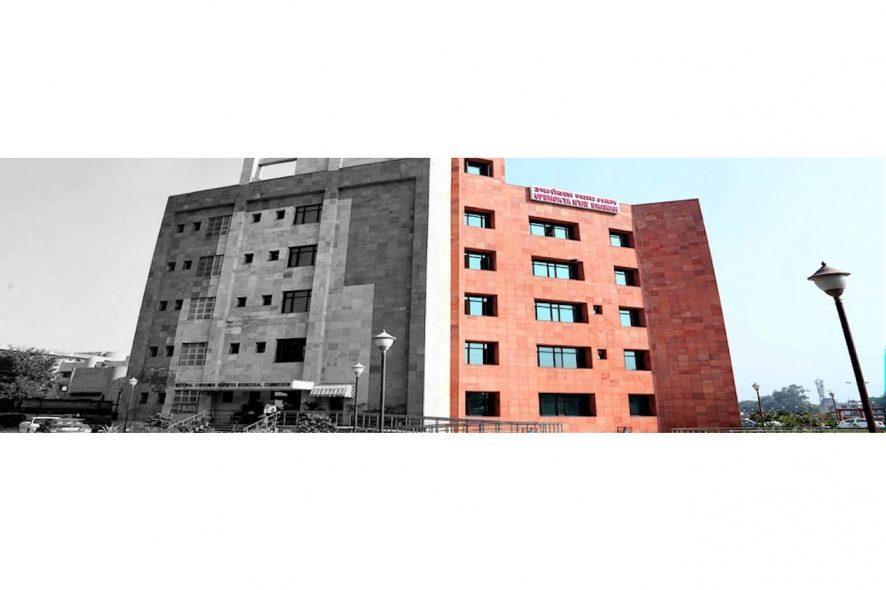National Consumer Disputes Redressal Commission (NCDRC): The Coram of Justice R.K. Agarwal (President) and Dr S.M. Kantikar (Member) analyses a matter wherein a patient developed serious issues after being operated, which led to her death, hence the doctors/hospital were alleged for medical negligence.
An appeal was preferred by Kapil Aggarwal and others (Appellants/Complainants) under Section 19 of the Consumer Protection Act, 1986 against the impugned order passed by the Haryana State Consumer Disputes Redressal Commission wherein the complaint of alleged medical negligence was dismissed against the Sarvodaya Hospital & Research Centre.
Factual Matrix
Complainant 1 had admitted his wife (patient) to Sarvodaya Hospital & Research Centre at Faridabad (Hospital). OP 2 examined the patient and was advised for removal of uterus. The patient was also suffering from umbilical hernia. The doctors specifically informed the patient’s condition was not suitable for two surgeries, which could prove fatal.
After being operated on, the patient’s condition was serious, hence she was shifted to ICU and put on oxygen and artificial ventilation support.
The Complainant was shocked to learn from the ICU bedside ticket that along with Hysterectomy, the surgery for hernia was also performed. No consent was given for hernia operation. Post operatively, the patient developed hypoxic encephalopathy. It was further alleged that in the ICU, Tracheostomy procedure was done four times.
It was also alleged that due to repeated X-ray & CT scan, the patient received heavy doses of radiation, which led to fall in Hb% to 8.3 g%. Due to the entire treatment being negligent, the patient’s death was caused.
On being aggrieved with the above, a complaint was filed seeking compensation to the tune of Rs 45,42,500.
Though the State Commission dismissed the above-stated complaint and on being aggrieved with the same, the instant first appeal was filed.
Analysis, Law and Decision
Coram noted from the medical record that based on the patient’s condition and the investigation, the doctors planned for Laparoscopic Total Hysterectomy.
As per the medical literature on laparoscopic hysterectomy surgeries, during the laparoscopic procedure umbilical port is used, and after TLH, at the time of removal, the umbilical port shall be closed.
In the instant case, admittedly, the patient had umbilical hernia and in the Commission’s opinion, the method adopted by the Surgeon was correct. Moreover, knowing the morbid obesity and other comorbidities, the operation was performed after obtaining high risk consent. Thus, it was TLH only and not the second surgery for the repair of hernia as no mesh and/or trackers were used for Umbilical Hernia repair surgery.
Whether it was a medical negligence wherein the patient suffered complication post-operatively?
In Commission’s opinion, both the procedures were performed as per standard of practice and unfortunately the patient developed serious complications post-operatively which were promptly treated by the team of doctors.
Further, the Coram relied on a Supreme Court decision in Achutrao Haribhao Khodwa v. State of Maharashtra, (1996) 2 SCC 634, wherein it was noticed that:
“in the very nature of medical profession, skills differs from doctor to doctor and more than one alternative course of treatment are available, all admissible. Negligence cannot be attributed to a doctor so long as he is performing his duties to the best of his ability and with due care and caution. Merely because the doctor chooses one course of action in preference to the other one available, he would not be liable if the course of action chosen by him was acceptable to the medical profession.”
Supreme Court observed that every mishap shall not be construed as negligence of the treating doctor or the hospital to fasten the liability.
Hence, in the present matter, medical negligence would not be conclusively attributed against the hospital and doctors.
Therefore, the first appeal was dismissed. [Kapil Aggarwal v. Sarvodaya Hospital & Research Centre, 2022 SCC OnLine NCDRC 21, decided on 8-2-2022]
Advocates before the Commission:
For the Appellant :
Mr. Prashant T. Bhushan, Advocate
Dr. H. M. Gupta, G.P.A. of the Appellants
For the Respondent:
Mr. S.N. Parasar, Advocate for R-1 to 5
Mr. Maibam N. Singh, Advocate for R-6


